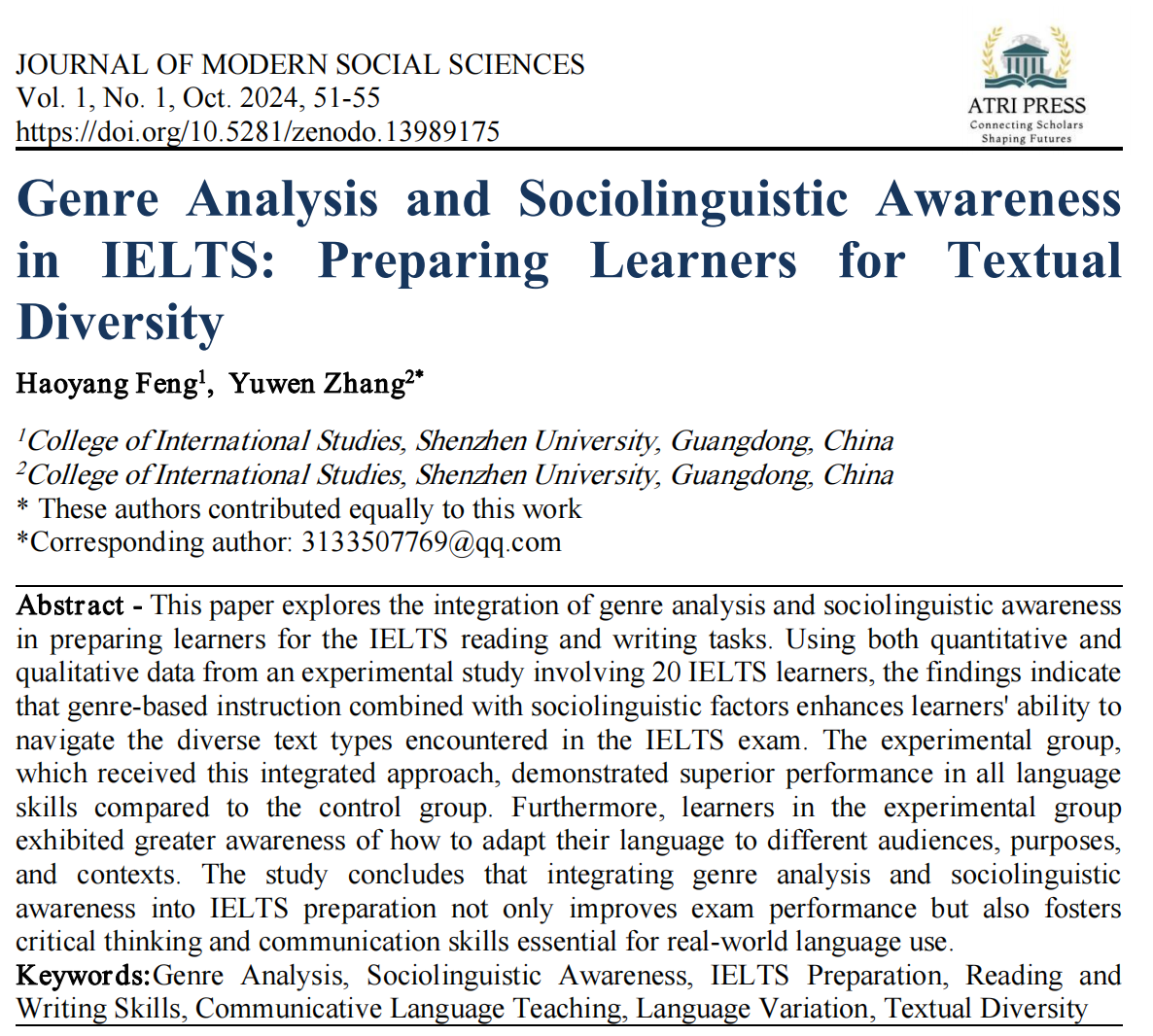Genre Analysis and Sociolinguistic Awareness in IELTS: Preparing Learners for Textual Diversity
DOI:
https://doi.org/10.5281/zenodo.13989175Keywords:
Genre Analysis, Sociolinguistic Awareness, IELTS Preparation, Reading and Writing Skills, Communicative Language Teaching, Language Variation, Textual DiversityAbstract
This paper explores the integration of genre analysis and sociolinguistic awareness in preparing learners for the IELTS reading and writing tasks. Using both quantitative and qualitative data from an experimental study involving 20 IELTS learners, the findings indicate that genre-based instruction combined with sociolinguistic factors enhances learners' ability to navigate the diverse text types encountered in the IELTS exam. The experimental group, which received this integrated approach, demonstrated superior performance in all language skills compared to the control group. Furthermore, learners in the experimental group exhibited greater awareness of how to adapt their language to different audiences, purposes, and contexts. The study concludes that integrating genre analysis and sociolinguistic awareness into IELTS preparation not only improves exam performance but also fosters critical thinking and communication skills essential for real-world language use.
References
[1]Cong, R. (2023, January 1). The Application of Sociolinguistic Theory in College English Teaching: A Brief Discussion. EDP Sciences, 168, 03026-03026. https://doi.org/10.1051/shsconf/202316803026
[2]Dirgeyasa, I W. (2016, July 17). Genre-Based Approach: What and How to Teach and to Learn Writing. Canadian Center of Science and Education, 9(9), 45-45. https://doi.org/10.5539/elt.v9n9p45
[3]Epstein‐Jannai, M. (2005, January 1). Using the Concept of Genre in a Writing Workshop: Description of a Learning Environment. Springer Science+Business Media, 5(1), 57-74. https://doi.org/10.1007/s10674-005-4954-y
[4]Johns, A M. (2011, February 2). The future of genre in L2 writing: Fundamental, but contested, instructional decisions. Elsevier BV, 20(1), 56-68. https://doi.org/10.1016/j.jslw.2010.12.003
[5]Kaufer, D S. (2006, November 1). Genre variation and minority ethnic identity: exploring the ‘personal profile’ in Indian American community publications. SAGE Publishing, 17(6), 761-784. https://doi.org/10.1177/0957926506068432
[6]Sankar, K P. (2022, January 1). A Theoretical Review: Sociolinguistics in Second Language Education. , 7(1), 211-217.https://doi.org/10.22161/ijels.71.28

Downloads
Published
How to Cite
Issue
Section
License
Copyright (c) 2024 The author retains copyright and grants the journal the right of first publication.

This work is licensed under a Creative Commons Attribution 4.0 International License.


























